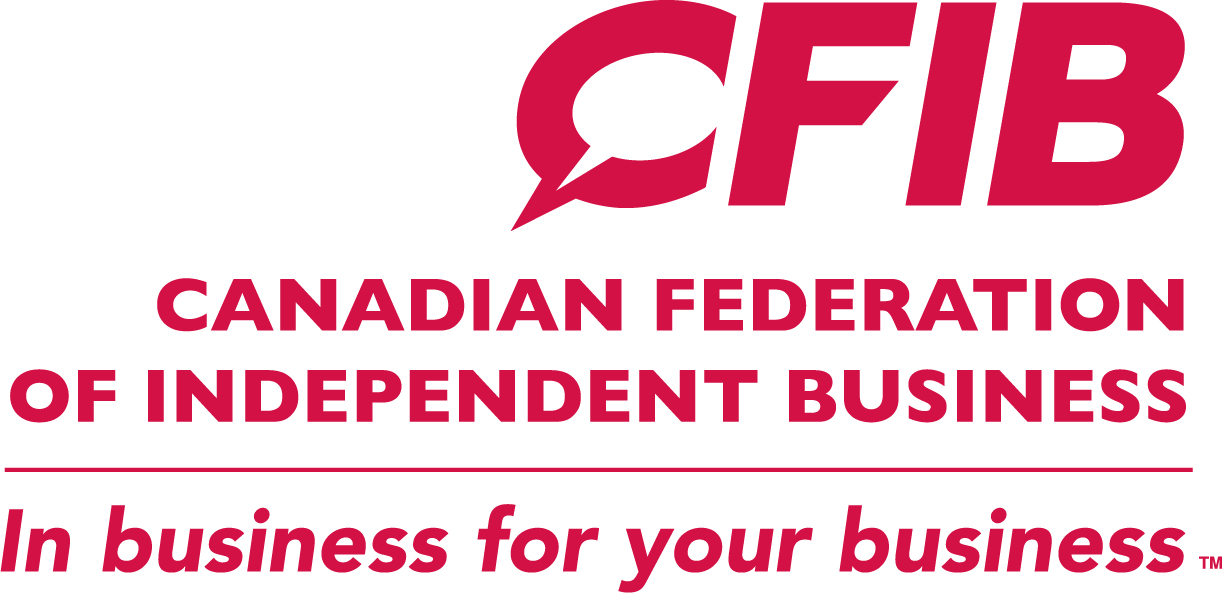Small businesses want to see meaningful cost-pressure relief from the federal government in the upcoming Fall Economic Statement Français
TORONTO, Nov. 20, 2023 /CNW/ - The federal government should not make things worse in its 2023 Fall Economic Statement and should implement policies that would help struggling small businesses, says the Canadian Federation of Independent Business (CFIB).
"The future is not looking bright for many small businesses who are getting squeezed by rising costs on all fronts. Between high interest rates, pandemic debt loads, weak domestic demand and labour shortages, business owners haven't had a normal month of sales in over three years," said CFIB's president Dan Kelly. "We're urging the government to do more to help small business owners and not put the future of viable businesses at risk."
CFIB will be looking for the following measures in the 2023 Fall Economic Statement:
CFIB continues to urge the government to extend the CEBA forgivable deadline further to December 31, 2024.
"The federal government's recent announcement of an 18-day extension to the forgivable deadline is not what small businesses were looking for. It didn't address the most critical and pressing deadline small businesses are worried about. They will lose the $20,000 forgivable portion of the CEBA loan unless they have the money to repay by January 18, 2024," Kelly said. "Too many small businesses are just not back to normal given the current economic conditions. The time to act is now."
- Cancel the 2024 Employment Insurance (EI) increase and work to reduce EI premium rates for smaller businesses.
- Delay the phase-out of the Accelerated Capital Cost Allowances measures and make immediate expensing permanent to encourage businesses to invest in automation to help address labour shortages.
- Increase the small business deduction threshold to $700,000, the lifetime capital gains exemption to $1.2 million and index both to inflation.
"The surprise EI rate increase for 2024 will cost businesses and employees $1.4 billion in 2024. This rate hike is another hit to small businesses and is coming at the worst time," said Corinne Pohlmann, Executive Vice-President of Advocacy at CFIB.
- Expand the carbon tax exemption to all forms of heating fuels, including natural gas and other sources used by small business.
- Halt future carbon tax increases, including the hike planned on April 1, 2024.
- Immediately return all promised funds to all small businesses that paid into the tax.
- Ensure businesses are eligible for rebates or refunds equivalent to the full share of the fuel charge costs they incur (CFIB estimates 40%).
CFIB's research estimates that despite collecting $22 billion in carbon pricing revenues, the federal government returned only 0.17% of the promised carbon tax proceeds to small businesses between the 2019-20 and 2022-23 fiscal years.
"The federal carbon tax is unfair to small businesses. They pay a significant portion of the carbon tax revenues but do not receive rebates like households do. Halting future carbon tax increases and returning promised proceeds would be most welcome by small businesses," said Jasmin Guénette, Vice-President of National Affairs at CFIB.
CFIB President Dan Kelly, Executive Vice-President of Advocacy Corinne Pohlmann and Vice-President of National Affairs Jasmin Guénette will be available to comment on the Fall Economic Statement on November 21.
The Canadian Federation of Independent Business (CFIB) is Canada's largest association of small and medium-sized businesses with 97,000 members across every industry and region. CFIB is dedicated to increasing business owners' chances of success by driving policy change at all levels of government, providing expert advice and tools, and negotiating exclusive savings. Learn more at cfib.ca.
SOURCE Canadian Federation of Independent Business

For media enquiries or interviews, please contact: Dariya Baiguzhiyeva, CFIB, 647-464-2814, [email protected]

Share this article